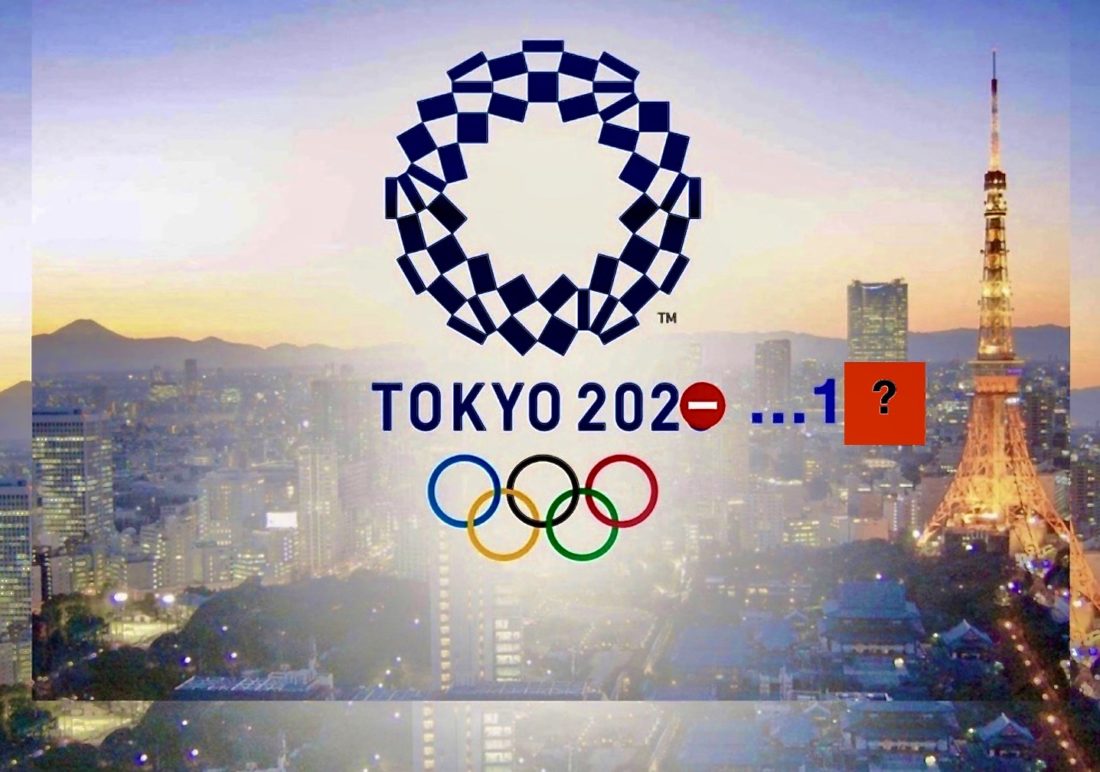Japan ‘Privately Concludes’ It Cannot Host Delayed Tokyo 2020 Olympics While Publicly Insisting ‘Games Will Go On’

The Japanese government has privately concluded that the delayed Tokyo 2020 Olympics will have to be cancelled because of the challenges of the coronavirus pandemic, the nation’s capital looking instead at a bid for – or offer to host – 2032, the next available slot after Paris 2024 and Los Angeles 2028.
That’s what a senior figure in the ruling coalition in Tokyo has told Richard Lloyd Parry, foreign correspondent for The Times of London.
According to the senior source, there is “agreement that the Games, already postponed a year, are doomed”, The Times reports today.
What makes the story significant is that it comes from a senior political source not a sports figure at a time when, for a variety of reasons, no-one is breaking ranks at the International Olympic Committee, the Tokyo 2020 Olympics organising committee, national Olympic committees, and among athletes, coaches and others, when it comes to the message “Games will go own/Games must go on”.
The Times notes that “the aim now is to find a face-saving way of announcing the cancellation that leaves open the possibility of Tokyo playing host at a later date” and quotes the source as saying:
“No one wants to be the first to say so but the consensus is that it’s too difficult. Personally, I don’t think it’s going to happen.”
Talk of 2032 will also be viewed in this context: Tokyo will forfeit billions if it cannot go ahead with the Games this year and would have to start from scratch for 2032; and such a move would be unlikely to unfold without Brisbane and other potential 2032 bidders having a say.
Ultimately, the decision will come down to Japanese politicians who will have to weigh up many factors, including the money, the wider economy, the impact of the pandemic not just on the Games – and public opinion if the current coalition wishes to survive the fallout from the virus.
In contrast to the “cancellation” message, Yoshihide Suga, the Japanese prime minister, told parliament this week: “We will have full anti-infection measures in place and proceed with preparation and with a determination to achieve the Games that can deliver hope and courage throughout the world.”
One argument in favour of that is pride: Japan’s imperative to host may be all the stronger because China is set to host the Winter Olympics in early 2022.
However, the scale of the current wave of COVID-19 infections, globally, and the challenges and focus on getting enough vaccine to enough people around the world, starting with frontline workers and the vulnerable, has tipped the balance in favour of cancellation of the Tokyo 2020 Olympics, according to the source speaking to The Times.
While some leading sports nations in the world have got vaccination programs well underway, experts believe that it will be early summer (northern hemisphere) at the earliest before a large enough proportion of populations in the “first world” have been covered for lockdown easing to start in any substantial way. Most countries of the world may take longer than that even to get frontline workers and their vulnerable covered.
Debate about whether athletes should be given any priority for vaccination is already underway after Olympic bosses indicated that, beyond the frontline and the vulnerable at the helm of the queue, those heading to Tokyo 2020 should be granted favoured status.
Cate Campbell, the Australian sprinter, is among leading athletes advocating for athletes to be considered in the second or third wave of vaccines because the Olympics is their job and “working from home is not an option”.
Japan has stated that the Games can go ahead without the vaccine being a necessity but that view has been met with skepticism among scientists who suggest that mass gatherings in the worlds of art and entertainment will not be possible until much later in the year.
Meanwhile, public-opinion polls and Japan and events at the Australian Open tennis tournament, a much smaller event than the Olympic Games, have contributed to second thoughts being expressed in Japan even though the public view of “Games will go on” remains the only message in town, be that Tokyo of Lausanne, the home of the IOC.
The Times notes: “Far from being a celebration of athleticism and international harmony, the Olympics have the potential to be a massive super-spreader event.”. It notes that the Australian Open, due to begin on February 8, is “beset by problems”, Spain’s Paula Badosa the latest player to test positive for COVID-19.
Reuters reports a denial from Japan that cancellation is now a serious option. A government spokesman said there was “no truth” in what the source had told The Times.
Reuters also cites an organising committee source – in an exchange of views via the media with not a name in sight – as saying: “It is very disappointing to see that the Times is developing such a tabloid-like story with an untrustworthy source. The national government is fully committed to delivering a safe and secure Games, and we are always encouraged by their dedications.